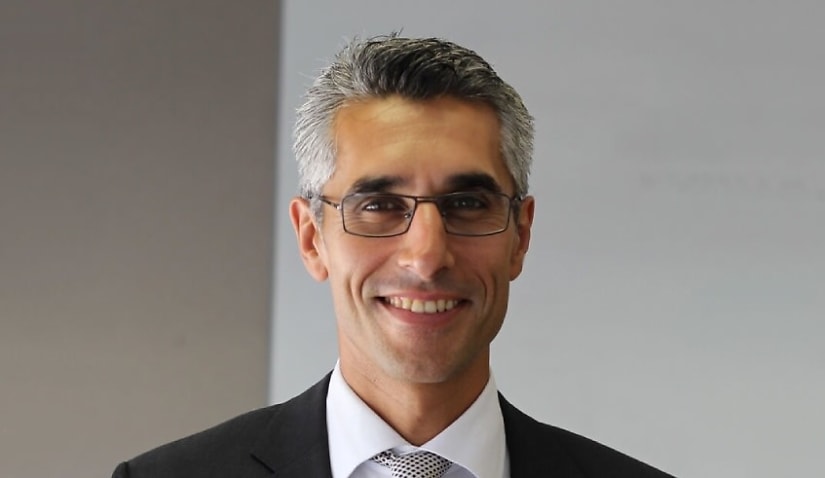By making decisions at the wrong end of the justice system and turning its back on those who need the most support, the government has contributed to the overimprisonment of Aboriginal and Torres Strait Islander peoples, the president of the Human Rights Commission has said.

During the 2013 National Access to Justice and Pro Bono Conference in Cairns, Australian Human Rights Commission (AHRC) president Hugh de Kretser was asked by an attendee and Aboriginal man to observe the treatment of First Nations people at the local Magistrates Court.
What he saw there was a “conveyor belt of injustice”.
Most experienced “profound injustice” in their lives, such as cognitive disabilities and financial vulnerability, and were going through the motions. One man with profound hearing loss could barely hear when asked about his plea; another was in the court for putting his hands on a police officer who had forcibly taken a bottle of wine from him.
“There was an inevitability that this justice system was doing nothing to address the causes of offending, and these same people would be held in prison cells or face escalating consequences,” de Kretser said.
De Kretser said his time at the Cairns Magistrates Court “blurred” over the hours into repeated themes of “neglect and violence during childhood, disengagement from education, unemployment, homelessness, mental illness, disability, substance abuse, and more”.
“The takeaway for me was clear: if we want safer communities, if we want to reduce imprisonment, we have to address these issues,” he said.
More than a decade later, de Kretser delivered the keynote at this year’s National Access to Justice and Pro Bono Conference in Melbourne, jointly delivered by the Australian Pro Bono Centre, the Law Council of Australia, and the Law Institute of Victoria.
De Kretser said what he had seen that morning in 2013 had “got much worse”.
“The rate at which Australian governments are locking up Aboriginal and Torres Strait Islander peoples in this country is one of the greatest human rights violations, one of the greatest injustices in this land.
“We need to change course,” de Kretser said.
Back in 1991, the Royal Commission into Aboriginal Deaths in Custody released its final report and delivered 339 recommendations to address overimprisonment, deaths in custody, and criminal justice reforms.
In the decades since, the rate of First Nations imprisonment only got worse: from 2,213 in June 1991 to 15,871 in June 2024. There have also been 600 deaths in custody since the commission’s report.
Although one of the better jurisdictions in terms of overimprisonment rates for Aboriginal and Torres Strait Islander peoples, Victoria – where the conference was hosted – jumped up about 14 per cent between 2024 and 2025, according to the Australian Bureau of Statistics.
When the Closing the Gap targets were made, the government committed to reducing Aboriginal and Torres Strait Islander overimprisonment by 15 per cent by 2031. Instead, the opposite happened: between 2023 and 2024, the overimprisonment rates increased by 15 per cent.
While most people in gaols are Aboriginal men, de Kretser said there has been a rapid growth in the rate of imprisonment for Indigenous women compared to non-Indigenous women across Australia.
De Kretser said one of the “key reasons” for these statistics is how governments and Parliament have responded to crime. In one example, he said they have been “proudly introducing” harsher bail laws that have caused more people to be locked up on remand.
“We know that prisons can be criminogenic; they can make it more likely that people will reoffend on release, and when you see the reoffending statistics, it shows that around 40 per cent of people exiting prison will be back there within two years,” de Kretser said.
“Prisons are ineffective at stopping reoffending, yet governments increasingly turn to them as if they are the answer to crime.”
De Kretser added the government tends to prioritise spending “at the wrong end of the system”, despite evidence that indicates it is far more effective and cost-efficient to focus on prevention.
Looking ahead, de Kretser said governments need to “prevent crime rather than respond after the damage is done with blunt, harmful and other counterproductive measures”. The public should also question policy priorities that abandon evidence for “lazy solutions”.
Given only 20 per cent of people in prison finished high school, de Kretser said there should be a focus on ensuring school systems respond to the needs of children, their cultures and any disabilities. Equally, families should be supported to raise their children “safe and healthy”.
There needs to be a fix for “failing child protection systems” to focus on early support, “rather than harmful interventions when it’s too late”.
Housing is also an “absolutely critical” factor in lowering the risks of reoffending, so there should be a focus on ensuring stable housing with wraparound supports for those exiting the cells, de Kretser added.
“None of these things slip off the tongue like ‘adult crime, adult time’, but we know they are key to safer, healthier, stronger communities, and we need to do a better job of telling the public this,” de Kretser said.
De Kretser acknowledged the positive steps Victoria has recently taken, including the election of the First Peoples’ Assembly of Victoria, the completion of the Yoorrook Justice Commission, and the first treaty legislation – which was before Parliament at the time of writing.
“This is the empowerment and self-determination that the royal commission talked about 34 years ago,” de Kretser said.
“It is resulting in a transfer of power and resources so that First Peoples have greater control and say over the issues that affect their lives. It is creating opportunities to shift laws and policies that are more effective in ensuring that First Nations people can thrive.
“We need to get behind it and support the change so that our justice system can truly live up to its name.”
